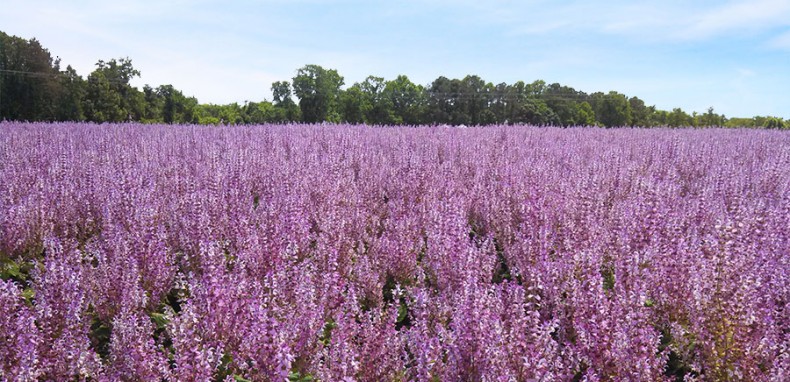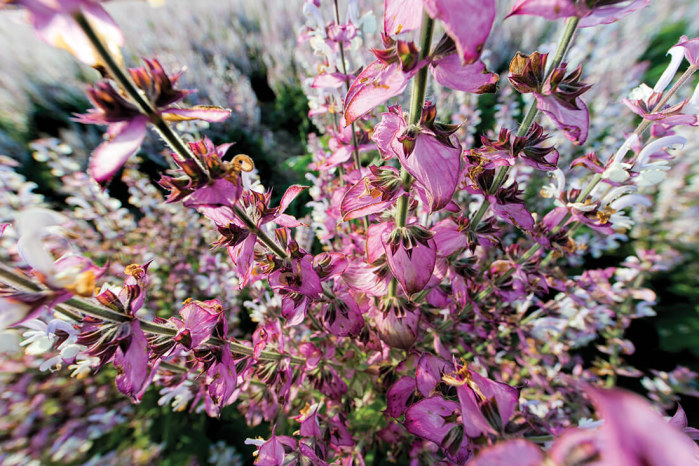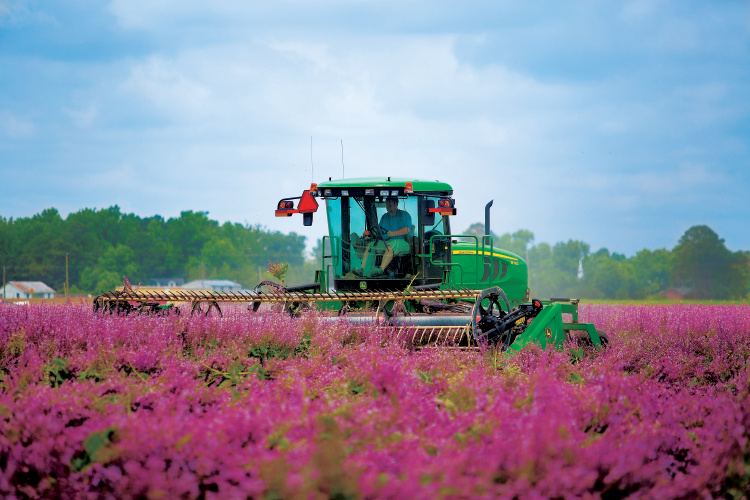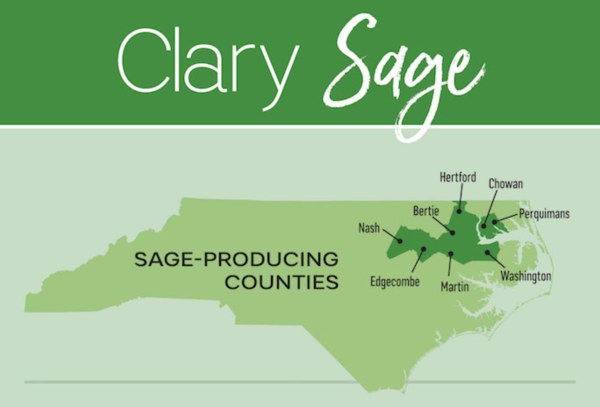What is Clary Sage and What is it used for?
Posted by Bonnie Leigh on Sep 7th 2023

Clary Sage Cultivation in North Carolina:
A Fragrant Endeavor
North Carolina's diverse agricultural landscape is known for its cultivation of various crops, ranging from tobacco and sweet potatoes to blueberries and Christmas trees. However, one lesser-known but highly valuable crop that has been gaining attention in recent years is Clary Sage (Salvia sclarea). This aromatic herb has found a favorable home in the state, contributing not only to its economy but also to the fragrance and cosmetic industries worldwide. In fact, many farmers in the northeast section of North Carolina have stopped growing soybean and tobacco to grow Clary Sage instead.
Description and Characteristics
Clary Sage, a member of the mint family (Lamiaceae), is a perennial herb known for its distinctive fragrance and vibrant appearance. The plant can reach heights of up to four feet and boasts large, heart-shaped leaves that are covered in fine, soft hairs. In early summer, Clary Sage produces tall, spiky clusters of delicate flowers ranging in color from pale lavender to lilac. These flowers not only contribute to the plant's visual appeal but also play a crucial role in its economic significance.

Industrial Applications
The most notable aspect of Clary Sage is its essential oil, which is extracted through steam distillation of the plant's flowering tops. This essential oil is highly valued for its unique aroma and diverse applications across various industries:
- Fragrance and Perfumery: Clary Sage essential oil is commonly used as a middle note in perfumes, lending a sweet, herbaceous scent with subtle floral undertones. It's also used in dryer sheets, and its complex aroma makes it a favorite among perfumers looking to create unique and sophisticated fragrance compositions.
- Aromatherapy: Due to its relaxing and soothing properties, Clary Sage essential oil is often used in aromatherapy to alleviate stress, anxiety, and mood swings. It is believed to have a calming effect on the nervous system.
- Cosmetics and Skincare: The oil's antiseptic and anti-inflammatory qualities make it a popular ingredient in skincare products. It can help reduce skin irritation and inflammation, making it suitable for creams, lotions, and serums.
- Flavoring: While not as common as its aromatic applications, Clary Sage has been used as a flavoring agent in certain food and beverage products, particularly in liqueurs and herbal teas.
Why North Carolina?
Several factors contribute to North Carolina's suitability for Clary Sage cultivation:
- Climate: Clary Sage thrives in a temperate climate with well-drained soil. North Carolina's climate, characterized by warm summers and mild winters, provides an ideal environment for the plant's growth.
- Soil: The state offers a range of soil types that are well-suited for Clary Sage cultivation, particularly sandy or loamy soils with good drainage.
- Agricultural Expertise: North Carolina has a rich history of agriculture and a strong agricultural extension network that supports farmers in exploring new crops and innovative cultivation practices.

Spread Across the US
While North Carolina has emerged as a significant player in Clary Sage cultivation, it's worth noting that this herb can be found growing in various parts of the United States. Clary Sage is known to be cultivated in states like California, Oregon, and Washington, where suitable growing conditions are available.
Clary Sage's rise as a valuable crop in North Carolina exemplifies the state's ability to adapt and diversify its agricultural offerings. With its fragrant flowers and versatile essential oil, Clary Sage has not only found a home in North Carolina's soil but has also captured the attention of industries around the world. As demand for natural fragrances, cosmetics, and therapeutic products continues to rise, Clary Sage cultivation in North Carolina is likely to remain a fragrant endeavor with a promising future.


